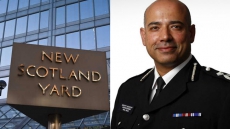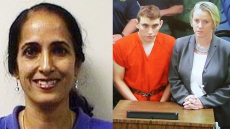Indian professionals have stepped up their fight against what they characterise as hostile immigration policies of the UK government and joined forces with migrants from other countries for a major protest outside the UK Parliament here this week.
The Highly Skilled Migrants group, which represents nearly 1,000 doctors, engineers, IT professionals and teachers from countries outside the European Union (EU), will bring together migrants from South Asia and Africa for one of its biggest protests so far on Wednesday.
The professionals and their families, mainly from India, Pakistan, Bangladesh and Nigeria, will protest against UK Home Office delays and unjustified refusals related to their applications for indefinite leave to remain (ILR) in Britain.
“India, Pakistan, Bangladesh we have forgotten where we come from and any divisions that may exist to fight for this common cause. More and more people are joining in as it becomes clear they are being denied the right to live and work in the UK on no valid grounds,” said Aditi Bhardwaj, one of the organisers of the group, which held its first protest outside Downing Street last month.
The professionals, who entered the UK on a Tier 1 (General) visa years ago, are entitled to apply for ILR or permanent residency status after five years of lawful residency in the UK.
While the visa category used by numerous software professionals from India among others was discontinued in 2010, former applicants are eligible to apply for residency in Britain until April this year if they meet the necessary requirements.
However, the Highly Skilled Migrants group claims to be aware of hundreds of cases where these applications are either held up in lengthy delays or refused on grounds of a section of the UK Immigration Act which is aimed at criminals and tax evaders.
“Skilled migrants with excellent educational and professional skills are being refused ILR and being referred to as a threat to the country just because they might have filled their tax late or had to maybe amend their taxes, which is permitted by law,” said Bhardwaj.
Her group has gathered nearly 22,500 signatures on an online petition on change.org, titled “Stop creating hostile environment for immigrants”, addressed to British Prime Minister Theresa May, UK home secretary Amber Rudd and Opposition Labour party leader Jeremy Corbyn.
“Those immigrants who were mainly on a highly skilled programme in the UK, working in respectable industries and positions are going through almost inhumane conditions,” the petition reads.
“We want the UKVI [UK Visas and Immigration] to start processing the applications within the service standard times at the least, which is six months’s notes the petition, to be handed over to British MPs during a meeting the group has been invited for in the House of Commons complex on March 6.
British Sikh MP Tan Dhesi and Pakistani-origin British MP Afzal Khan are among the parliamentarians who have been supporting their cause.
Indeed, there are delays affecting applicants for virtually every kind of visas, and the handling of such matters by the Home Office is a cause of great concern for myself and many parliamentarians,” said Dhesi, who is also a member of the All Party Parliamentary Group on Visas and Immigration.
The Highly Skilled Migrants group, formed as a result of various social media interactions, had raised 25,000 pounds through private donations and is now working on launching a crowd-funding initiative to be able to sustain any legal challenge that may be required against the UK Home Office.
The Home Office claims it is committed to resolving all visa applications as quickly as possible and that significant numbersof Tier 1 applicants have reported different figures to them and the UK tax department (HMRC) in order to alter their tax liabilities or meet the requirements of the immigration rules, or both.
“It is vital that the correct decisions are made, particularly with complex Tier 1 applications that require detailed consideration and verification of evidence with HMRC. These robust checks are essential to avoid the potential abuse of our immigration or tax system. Where such abuse is identified, we will act accordingly,” a Home Office spokesperson said.
The government claims that where there has been clear evidence that applicants have lied on their visa forms, the courts have upheld refusal decisions in most cases when these decisions are challenged.





